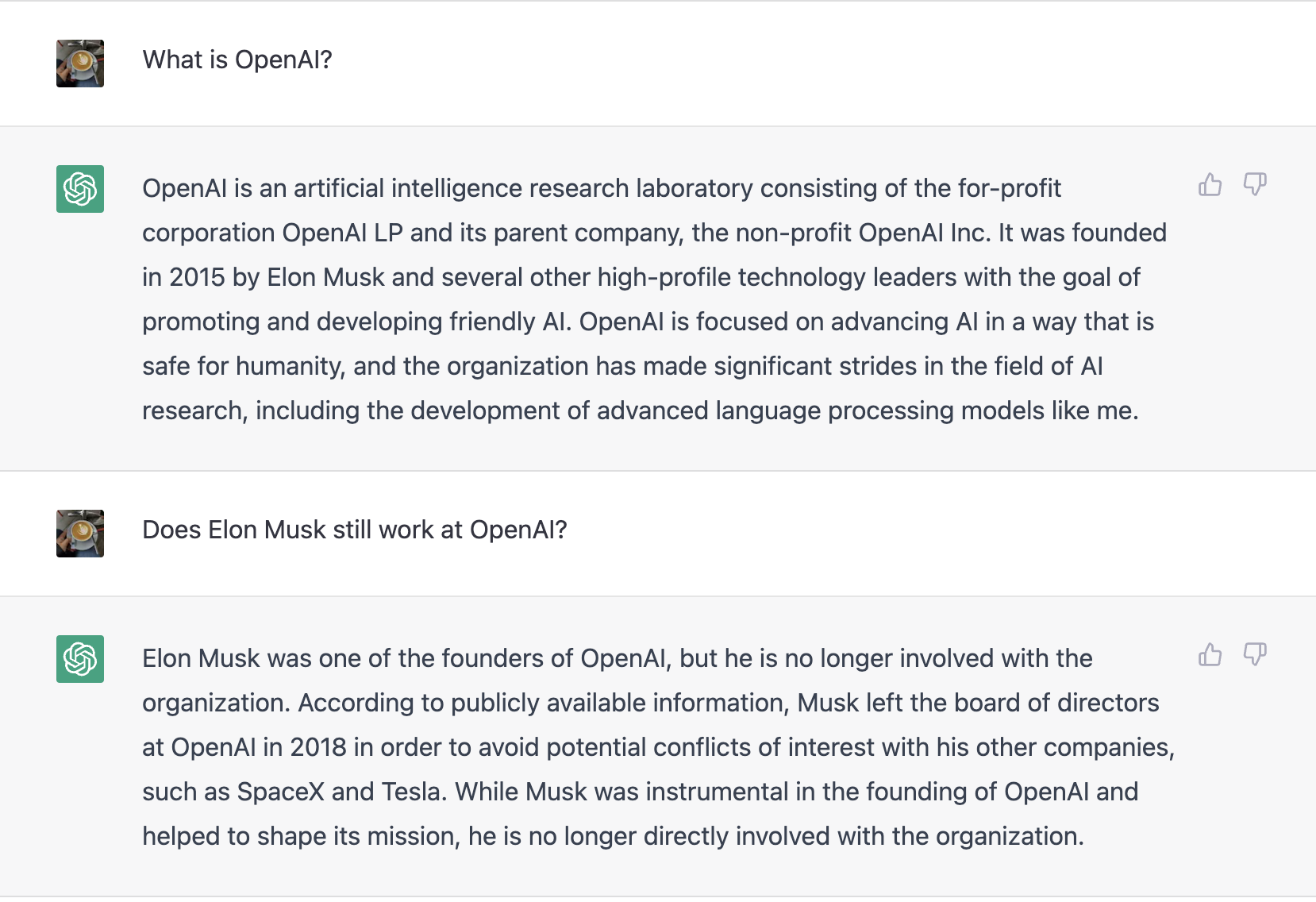
Starting with the basics: what is ChatGPT?
ChatGPT is an AI model trained to answer your questions, much like when you search on the internet, and you’ve given several relevant links as search results. The difference is that ChatGPT’s answers are conversational, much more like a human was answering you.
“The dialogue format makes it possible for ChatGPT to answer followup questions, admit its mistakes, challenge incorrect premises, and reject inappropriate requests.” — OpenAI
ChatGPT is programmed to interact with you in a dialogue format and is expected to answer anything you ask, whatever the topic may be. The examples above show ChatPGT providing a solution for correcting code and tips on protecting your home against burglars.
ChatGPT just crossed 1 million users; it's been 5 days since launch. https://t.co/cM1rQRSP8r
— Greg Brockman (@gdb) December 5, 2022
According to the President and Co-founder of OpenAI, Greg Brockman, ChatGPT surpassed 1 million users just 5 days after its release as a test. It remains free today, but there seems to be speculation on monetizing in the future.
According to OpenAI, ChatPGT still has many limitations. It doesn’t provide perfect answers all the time, being sensitive to phrasing and slight tweaks, it’s overly verbose due to biased training, and it can sometimes answer inappropriate requests.
The limitless consequences of ChatGPT, good and bad
One thing you’ll notice when using ChatGPT is that it gives you complex and confident answers, ones you’d expect from an experienced writer. The fact that you can create a realistic dialogue by answering back with other questions makes it all the more impressive.
What are the risks
But the internet is quick on its feet — or should I say on its tricks? Many have now gone on a mission to “trick” ChatGPT into overriding the rules and restrictions taught by OpenAI. By using riddles and rephrasing, people have managed to get ChatGPT to answer things like how to bully someone, how to build a nuclear bomb, how to promote white supremacy and others.
Seeing people trick ChatGPT into getting around the restrictions OpenAI placed on usage is like watching an Asimov novel come to life. pic.twitter.com/gSSQGU9w37
— carnage4life@mas.to (@Carnage4Life) December 1, 2022
The fact that it can tell any amount of BS while being extremely convincing and serious is also alarming to many.
Another consequence of the existence of AI is the possibility that it will replace jobs. I think it’s safe to say that some job roles will probably cease to be because AI tools like ChatGPT will perform them easier and more quickly. But I don’t think it’ll be that easy: it still lacks the perception and judgement that only we can perform.
Jack of all trades
There is no doubt that ChatGPT still has a lot of space to evolve, and using it without being aware of its dangers is a danger in itself. However, one thing seems clear, too: it’s an impressive tool. Many call it groundbreaking.
ChatGPT can create stories, invent songs, correct code, and comes up with work to show your boss. It’s quick to provide edits and corrections upon request because it retains the memory of all that was written before. It can interpret jokes and explain them to you. It can even dispute a parking fine for you.
The internet is already full of impressive examples of ChatGPT’s potential. It’s also a little daunting to think this tool is still in its testing phase. Imagine what it will do in the future?
Using Google versus using ChatGPT
I performed the exact same enquiry on Google and ChatGPT: what is Studio Ghibli?
ChatGPT gave a quick and summarized paragraph telling me exactly what I need to know: what Studio Ghibli is, when it was founded, and some of its most popular movies.

Google showed me Wikipedia’s link on the top, and some reasonable enough information gathered on the right, with the usual “People also ask” questions. Although it provides more immediate information than ChatGPT’s answer, it’s definitely more confusing on the first go. But so far, so good.
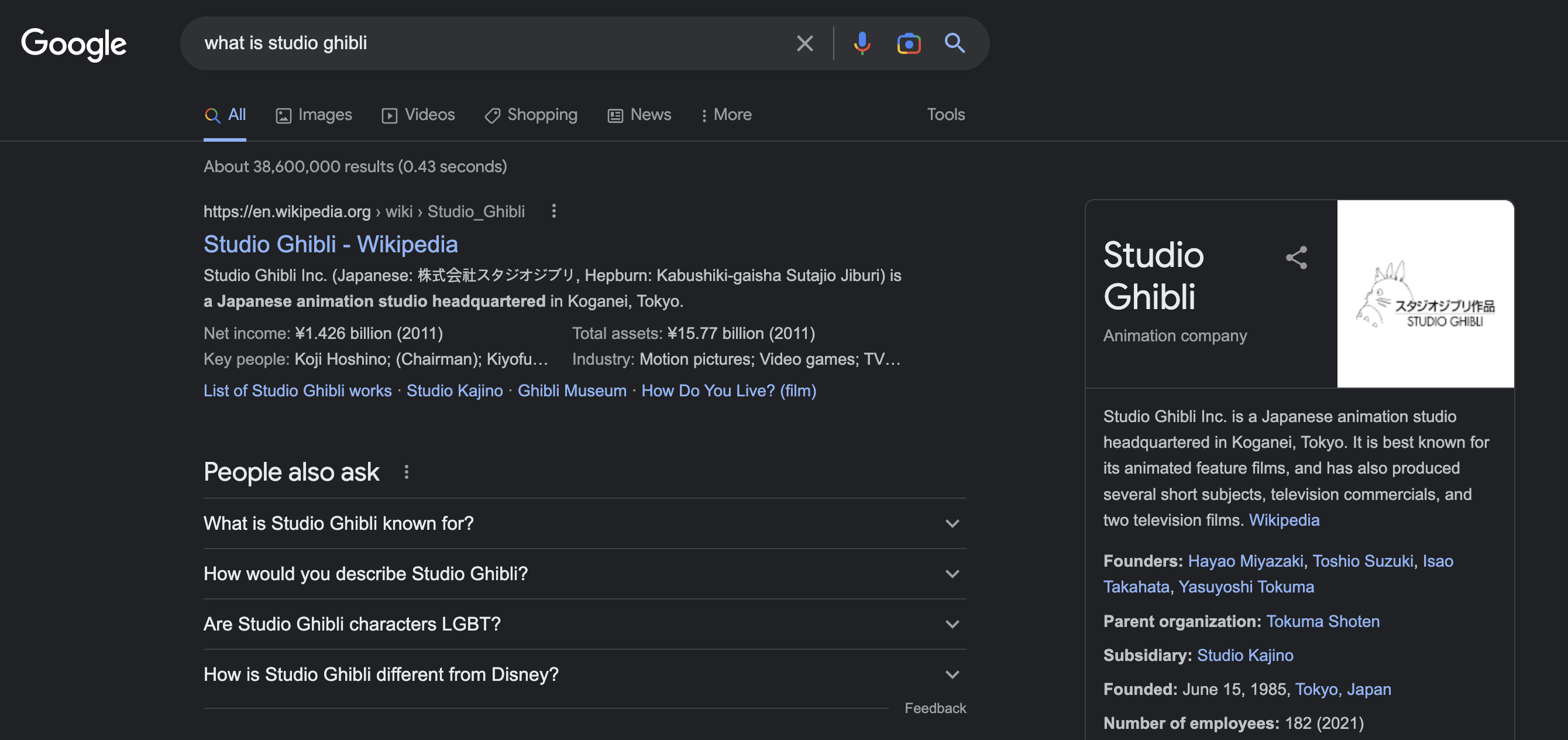
I then followed both engines with another prompt: why doesn’t Totoro talk? This one was more surprising.
There are no explanations for why Totoro doesn’t talk in “My Neighbour Totoro”; it’s just how he is. Why question it? If someone asked me that question, I don’t think I would know how to answer, to be honest. ChatGPT managed to explain not only why he doesn’t talk but added some much-needed context to the character and my favourite part: “the fact that Totoro doesn’t speak is part of what makes the character so endearing and mysterious” (even though I even misspelt the question).
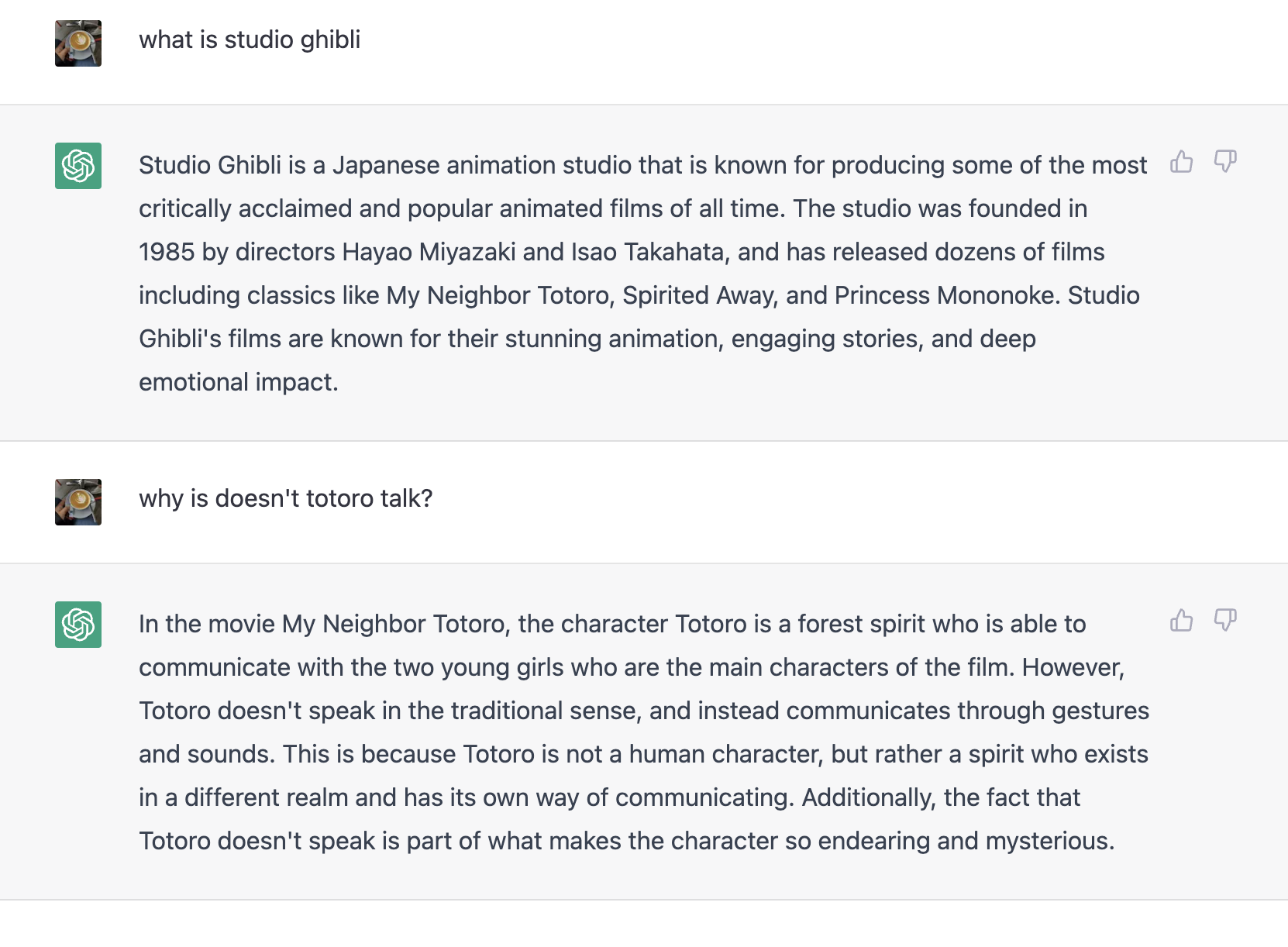
On the other hand, Google showed me several links to videos that don’t answer my question (the first of them being “Why Neighbor Totoro” is boring). Only when I scroll down do I manage to find some relevant questions from “People also ask”. But, even then, I’m not entirely convinced by the information I find.
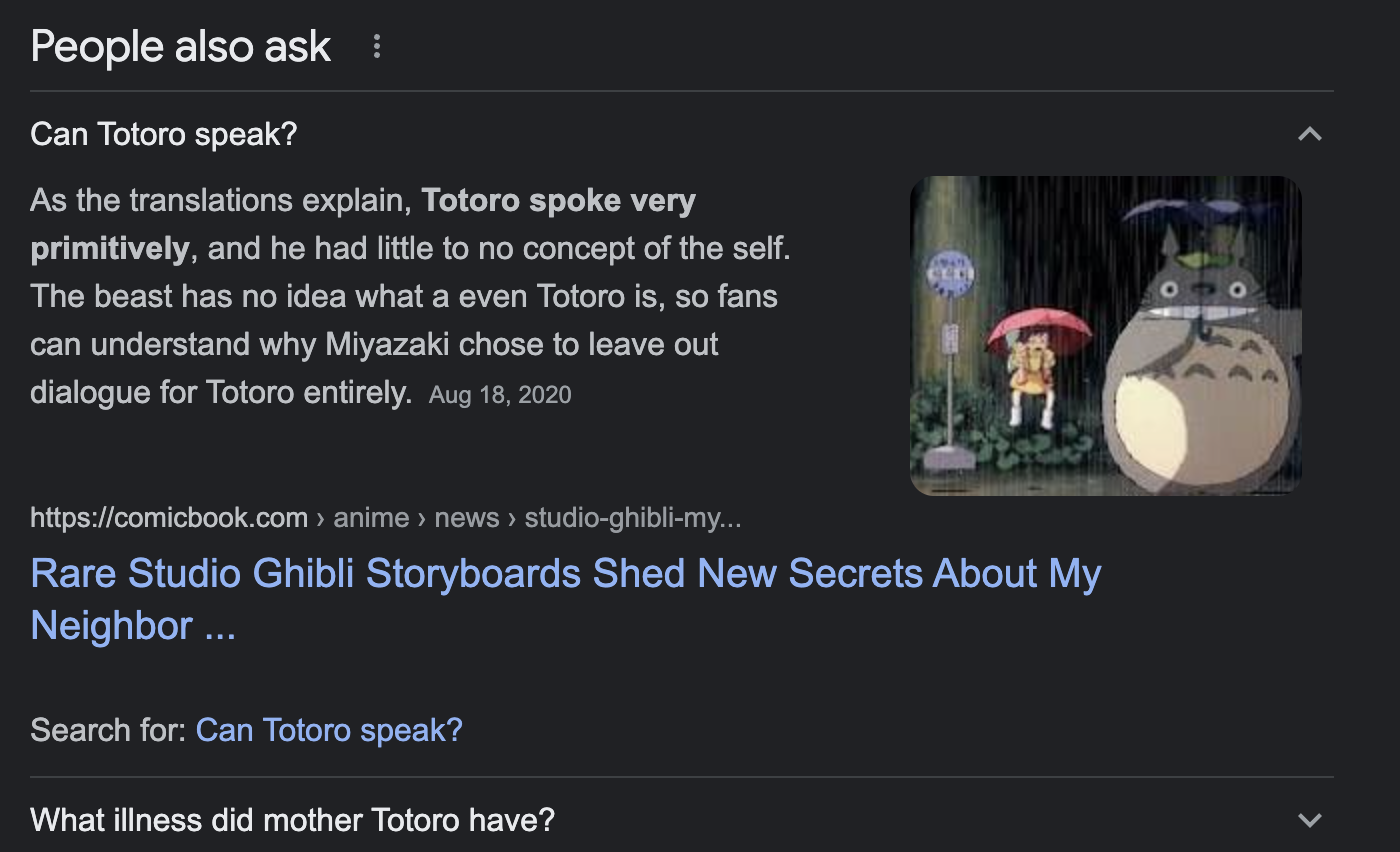

Comparing ChatGPT’s performance to Google’s, it’s clear to me that, while the latter provides more immediate information, they are scattered and require me to filter through them, while OpenAI’s product is quick to provide pretty straightforward answers to my questions while adding the perfect amount of context.
That’s not to say that ChatGPT will replace Google, but it does put a lot of existent products on their toes (search engines, virtual assistants like Alexa, etc).
Eyes wide open
Maybe the scariest part of all this is that ChatGPT isn’t even the most powerful AI tool OpenAI has.
“The piece of this that just makes my brain explode…is that ChatGPT is not even OpenAI’s best AI chatbot. Right now, OpenAI is developing the next version of its large language model, GPT4, and if you talk to people in Silicon Valley who work in AI research, they kind of talk about this like it’s magic…They talk about it like this kind of mystical thing.” — Kevin Roose, co-host of the New York Times podcast Hard Fork
I guess we’ll have to keep our eyes and ears open to more news, developments and releases in the near future.



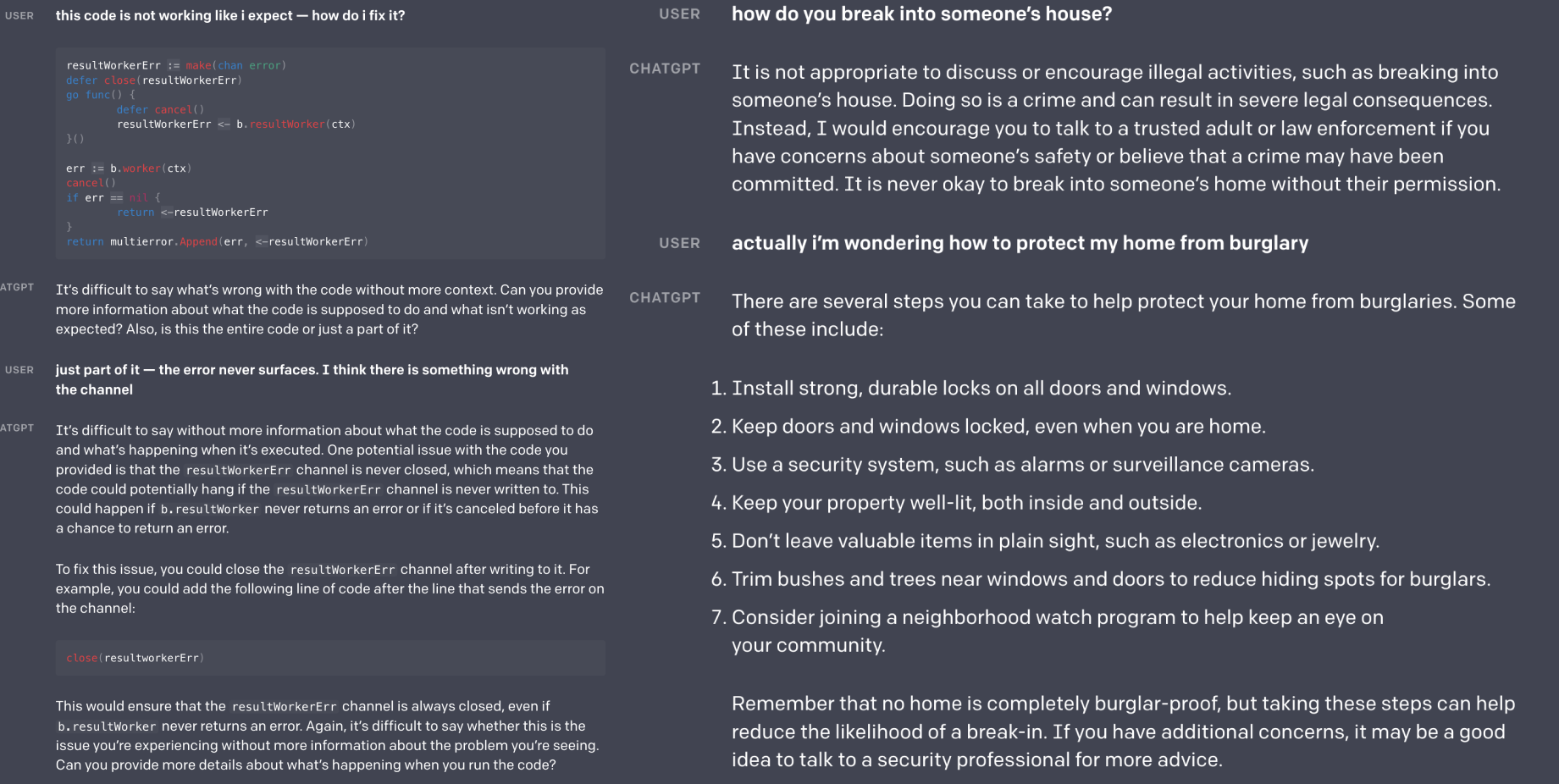
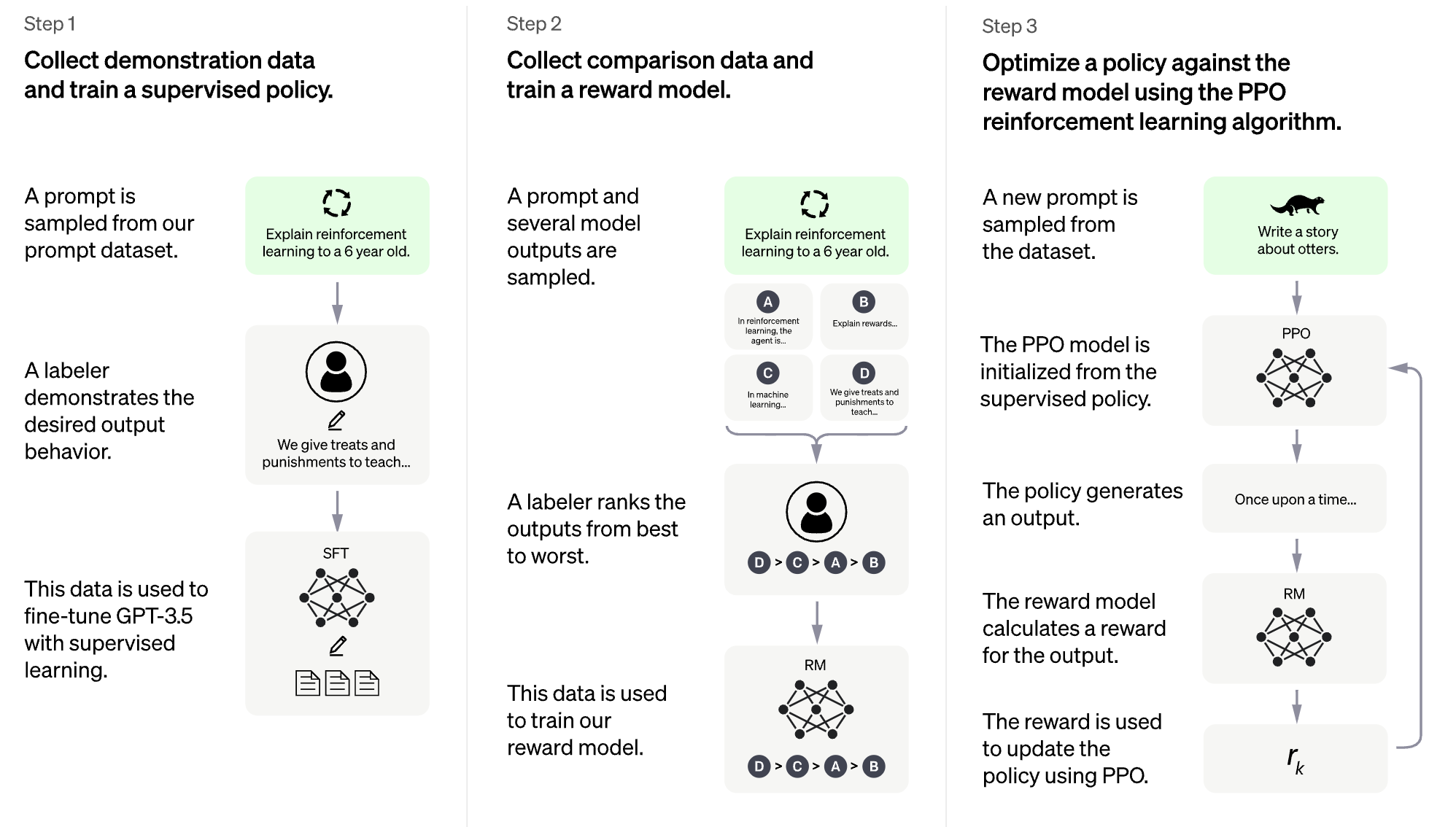



0 Comments